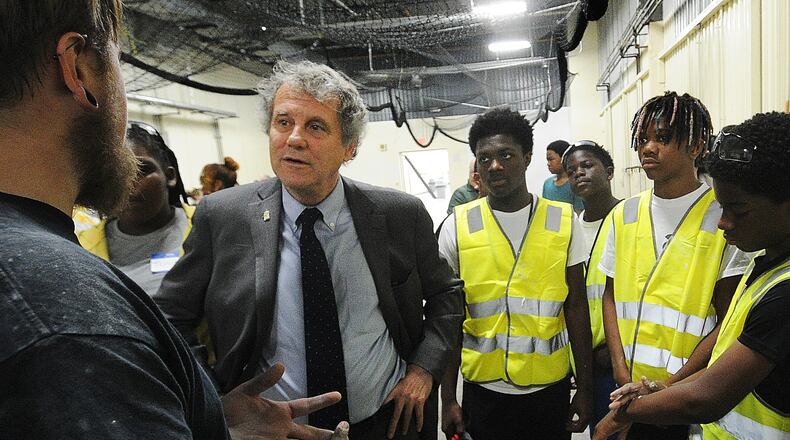Brown, who is running for reelection in 2024, said the current deduction is far less than most teachers spend out of their own pocket for various classroom supplies.
“For too many teachers it means spending hundreds of dollars of their own hard earned money and none of them are overpaid, let’s start with that, on the supplies our students need,” Brown said.
“(A) Department of Education study shows that 94% of public school teachers, 94%, 19 out of 20, spend hundreds of dollars each year on classroom supplies. One in 10 teachers spend more than a $1,000 every year on classroom supplies, not things the school board is buying for them, things they reach in their pocket and take care of.”
A report in myelearningworld.com said in 2022, teachers would spend an average of $820 of their own funds each year. That was up 37% from 2015, according to the report.
In total, teachers across the US will spend around $3 billion on essential items to help their students succeed during the upcoming school year. This includes items like pencils, paper, cleaning supplies, books, software, and other materials, according to the article. In 2022-23, Ohio educators were expected to spend $93 million on these school supplies out of their pockets.
Brown said that doesn’t seem right to him as teachers can only deduct a fraction of what they are spending out of pocket and believes this change is needed to help educators to help recoup the costs.
If enacted, the proposed bill would have provisions to keep up with inflation and expand the definition of educators who would qualify for this deduction to include teachers, counselors, principals and other aides.
“Small but meaningful change but matters to educators who do so much for their students and sacrifice so much for their students. For most teachers, hard work never pays off the way that it should,” he said.
Brown said some teachers are working second jobs to pay their bills and some are leaving teaching because they can’t afford to stay in the classroom and support their families.
Teacher Heather Stambaugh, a high school social studies teacher at Greenon Local School District and president of the Greenon Federation of Teachers, Local 4370, said there is more to education than four walls, students and a teacher. She said part of their job is creating a classroom where students feel at-ease and ready to learn.
Many districts do not reimburse for many of these out-of-pocket expenses and many items are costly, she said. Stambaugh she’s known some first-year teachers who are spending their own money for items before they have received their first paycheck as a teacher.
Items for positive behavior also come out of teacher’s pockets as well as purchasing a computer for remote work, she said.
Brown said he did not have any numbers as to the cost of the proposed deduction, “but it will not be especially costly.” He said there is bipartisan support in the U.S. House of Representatives.
According to the Ohio Department of Education website, there are 139,317 full-time equivalent educators that are licensed to work in Ohio’s public schools. This number excludes private parochial school educators.
Senators Bob Casey (D-Pa.), Tina Smith (D-Minn.), Amy Klobuchar (D-Minn.), Chris Van Hollen (D-Md.), Chris Murphy (D-Conn.), Jeanne Shaheen (D-N.H.), Alex Padilla (D-Calif.), Bob Menendez (D-N.J.), Angus King (I-Maine) are co-sponsoring the bill. Rep. Tim Burchett (R-Tenn.) and Rep. Sean Casten (D-Ill.) are expected to introduce companion legislation in the house this week.
About the Author

